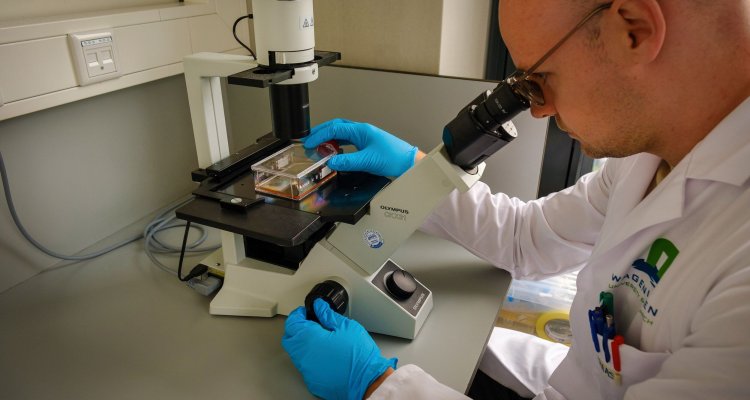
Advanced in vitro models
Traditional toxicity testing of chemicals uses animal tests. The research within this theme focuses on developing and implementing advanced human cell models to better understand the action of potentially harmful chemicals. This research therefore contributes to a reduction in animal testing. Advanced cell models include culturing multiple cell types together on a chip through which medium with the chemical flow. In so doing, the cells better resemble tissues in situ that see many chemicals and nanoparticles, like the liver and intestines. These organs-on-a-chip devices allow for a molecular view of the effects of chemicals and nanoparticles have on the communication between different cell types in an organ.
For all research projects in this theme, please see Research@WUR.
Relevant Publications
-
The in vitro gastrointestinal digestion-associated protein corona of polystyrene nano- and microplastics increases their uptake by human THP-1-derived macrophages
Particle and Fibre Toxicology (2024), Volume: 21 - ISSN 1743-8977 -
Deoxynivalenol increases pro-inflammatory cytokine secretion and reduces primary bile acid transport in an inflamed intestinal in vitro co-culture model
Food Research International (2023), Volume: 173 - ISSN 0963-9969 -
Investigating nanoplastics toxicity using advanced stem cell-based intestinal and lung in vitro models
Frontiers in Toxicology (2023), Volume: 5 - ISSN 2673-3080